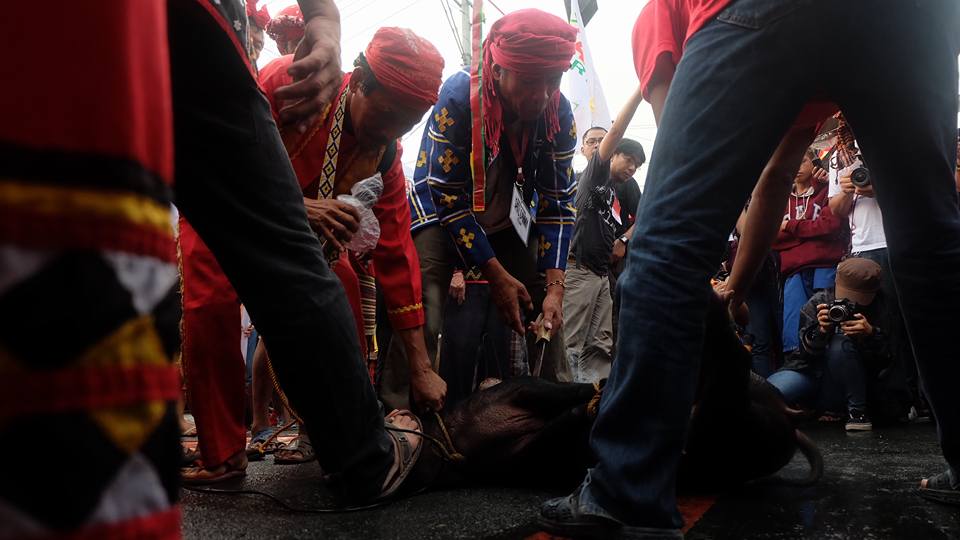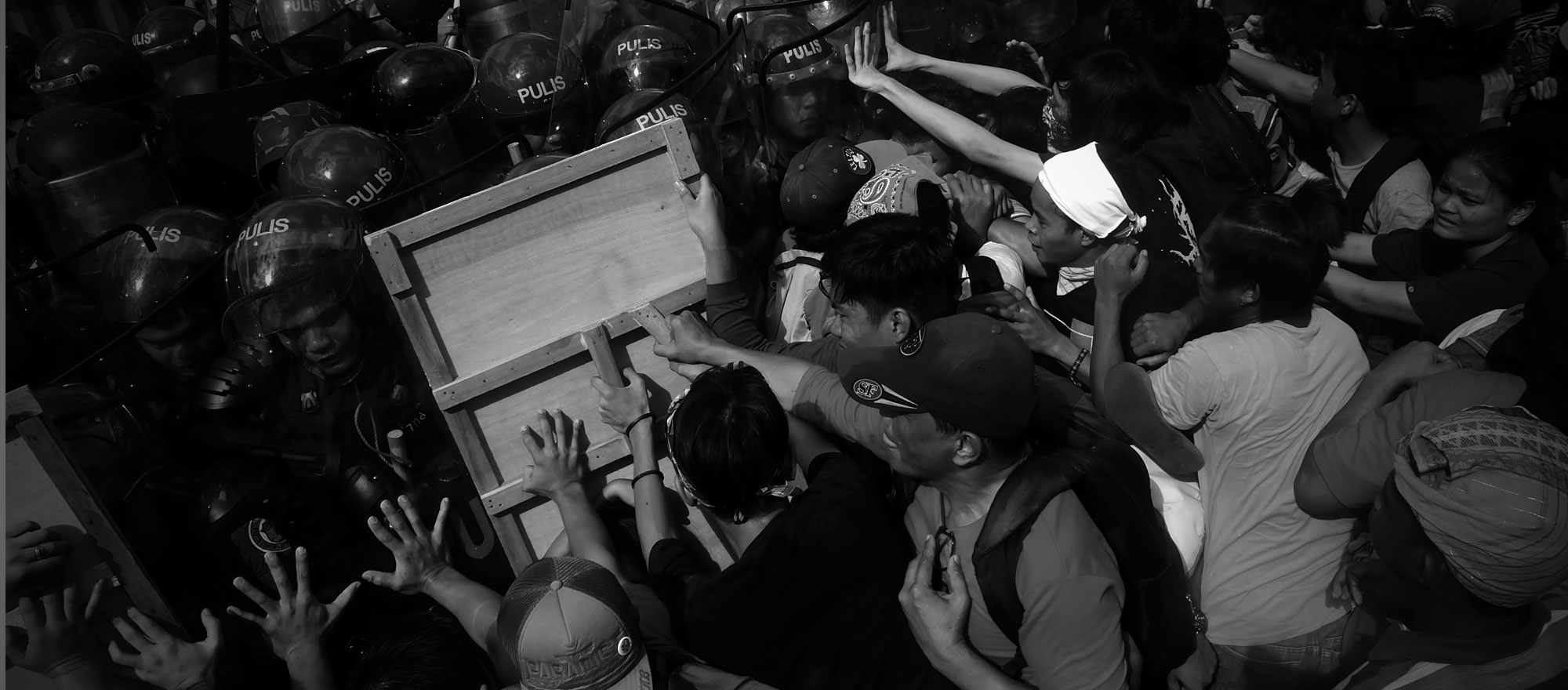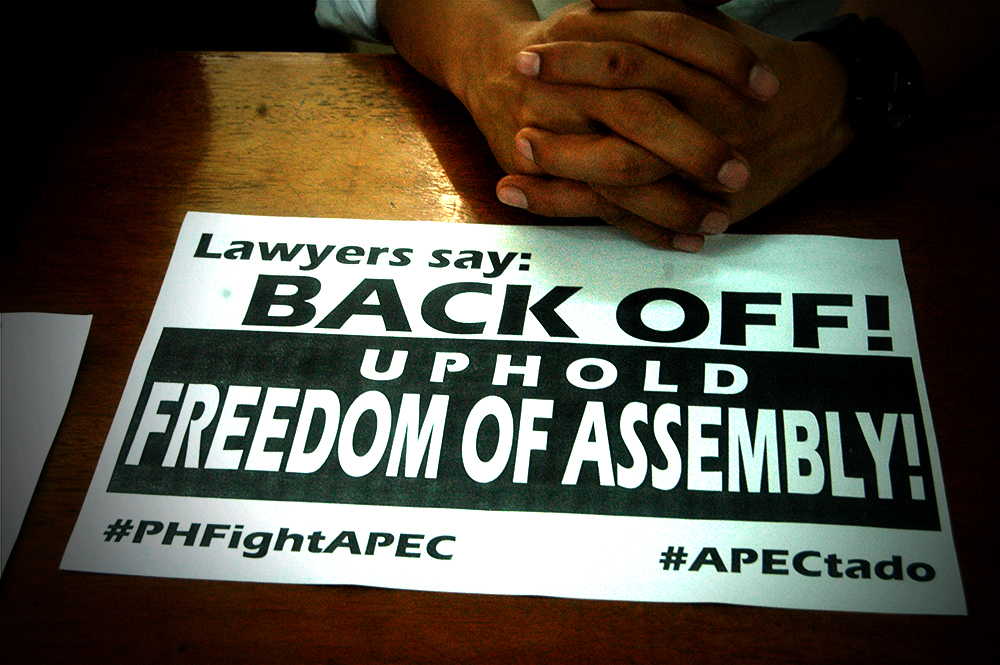Indigenous people from North Luzon join in anti-APEC protests, picket AFP camp
Indigenous peoples from the North to the South of the Philippines protested against the Asia-Pacific Economic Cooperation, as well as the Armed Forces of the Philippines, which they say is being used by monopoly capitalists to enforce their development aggression into ancestral lands.


Groups from Northern Luzon organized a caravan going to Manila dubbed as “Martsa ti Amianan” to stage protest against the on-going Asia Pacific Economic Cooperation (APEC) Economic Leaders Summit being held at the Philippine International Convention Center (PICC) in Manila.
The caravan is constituted mainly by indigenous people and peasants from Cordillera, Cagayan Valley, Isabela, and Ilocos Region.
The caravan converged with the Manilakbayan ng Mindanao 2015 delegates from Mindanao to join the People’s Campaign Against APEC and Imperialist Globalization (PCAIG). The protest campaign aims to highlight, among others, the human rights violations and environmental destruction ushered in by “decades of destructive extractive industries such as large-scale mining and corporate energy projects.”
Indigenous people leaders officiated a sacrificial rite of a wild boar in front of the Mendiola Peace Arc to signify the solidarity among indigenous people and other groups from across the country.
The group then proceeded to Camp Aguinaldo in Quezon City to assert their demands to end the militarization in the countryside and citing the Armed Forces of the Philippines as “investment protectors” rather than servants of public interest.
Bottled waters for drinking were being given away by the police to the group during the program. A protesting old man, however, was not amused and lashed to the police “Hustisya ang kailangan namin, hindi tubig! Marami kaming mapagkukunan ng tubig!” (“We need justice, not bottled water! We have many water resources back home!”)
The short program finished with a loud “feliz navidad” echoing from the speakers inside the Gate 1 of Camp Aguinaldo followed by bombing of firetruck water from inside the compound. A glass bottle was seen flying from inside the compound into the group’s direction, injuring one protester.
According to Amianan Salakniban, the Northern Luzon environment and human rights network, the extractive operations of multinational corporations do not only result to massive damage to the environment but also the displacement of peasants and indigenous people from their lands.
“Those who fight to defend their lands become victims to various human rights violations and extra-juridicial killings,” said Fernando Mangili, spokesperson of Amianan Salakniban. He added that last year alone, five environmental activists and mining advocates were killed by the elements of the military.
A data from the Mines and Geosciences Bureau on mining tenements shows that out 999 mining applications in the Philippines, 497 of them are in Northern Luzon. Three of the oldest mines (Lepanto, Benguet Corp,. And Philex) are still operating in Benguet.
Legal and illegal black sand mining in activities in the coasts of Ilocos and Cagayan Valley have dwindled due to people’s opposition but the pending applications are still numerous.
The Aquino administration is optimistic that APEC will bring about a positive impact to the country’s economy but the group was not convinced. They warned that after the APEC, Philippines will yet again “experience intensified operations of large-scaled mining, more energy projects, expansion of mono-crop commercial plantations and logging, of indigenous lands, waters and territories.”
“The people must be ready to resist this corporate plunder of our resources,” said Mangili.




